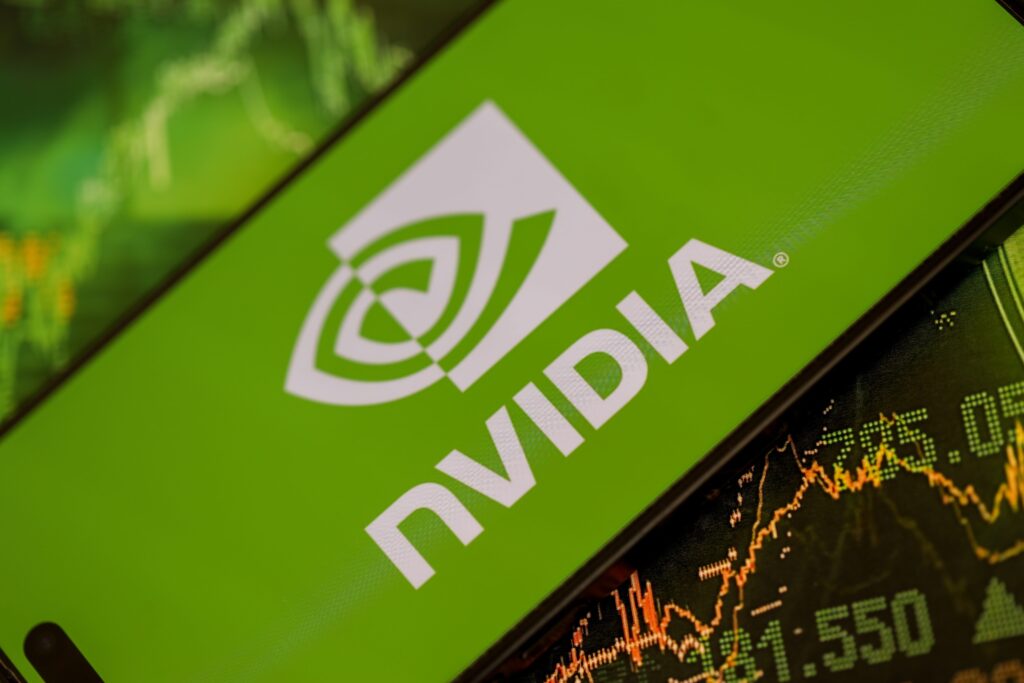South Korea at the heart of Nvidia’s AI ambitions
Nvidia will supply over 260,000 of its most advanced AI chips to South Korea’s government and leading firms including Samsung, LG, and Hyundai. These chips will power factories producing semiconductors, robots, and self-driving vehicles. Chief executive Jensen Huang said the deal allows South Korea to “export intelligence as a new product.” He did not reveal the overall value of the contracts.
The announcement ends a remarkable week for Nvidia. On Wednesday, it became the first company in history to hit a $5 trillion valuation. A day later, hopes rose that easing trade tensions between Washington and Beijing could lead to renewed chip exports to China.
At a CEO summit during the Asia-Pacific Economic Cooperation meeting in Gyeongju, Huang explained that the new chips will let companies create “digital twins” of factories worldwide. The agreements mark Nvidia’s latest move to expand AI infrastructure and embed artificial intelligence into global industries.
Global partnerships strengthen Nvidia’s dominance
Nvidia’s international alliances have played a key role in its record-breaking success. The company continues to secure its position as the world’s leading AI innovator.
However, its South Korean expansion comes amid ongoing challenges from the US-China trade conflict. China once generated more than ten percent of Nvidia’s revenue, but strict export rules have halted access to its most powerful chips.
“We used to have 95% of the AI business in China. Now we’re at zero,” Huang said in Gyeongju. “I’m disappointed by that.”
Trade talks with China could open new doors
Following a meeting with Chinese President Xi Jinping, former US President Donald Trump said Beijing will begin talks with Nvidia about potential chip sales. He described the discussions as a matter between China and Nvidia, with the US acting as a “referee.”
On Friday, Huang said he wants to sell Nvidia’s advanced Blackwell chips to China, though the final decision rests with the US President. Current export regulations still block the sale of Nvidia’s most sophisticated processors to Chinese firms.
Huang shared no updates on the negotiations but expressed hope for change. “It’s in America’s interest to have access to the China market,” he said. “And it’s in China’s interest to welcome American technology. We want American innovation to set the global standard.”
South Korea invests heavily in AI leadership
South Korea, already a powerhouse in semiconductors and automotive technology, plans to lead the region in artificial intelligence.
Huang described the country as ideal for AI development, citing its energy capacity, available land, and industrial strength. President Lee Jae Myung has pledged to prioritise AI investment, particularly in response to US trade pressure.
With Nvidia’s partnership, South Korea will build national computing systems under the “sovereign AI” concept. More than 50,000 Nvidia chips will power data centres at the National AI Computing Center and companies such as Kakao and Naver.
Asia’s manufacturing power drives Nvidia’s growth
Nvidia relies on Asia’s tightly connected supply chains for production. The company designs chips but outsources manufacturing to key partners such as Samsung, SK Hynix, and TSMC.
TSMC produces Nvidia’s most advanced processors, including the flagship Blackwell series. Samsung provides parts for the H20 processor, a scaled-down version adapted to meet US export limits for China.
US officials and security experts have long warned that selling advanced AI chips to China could enhance its military and technological capabilities. In response, China has accelerated efforts to develop domestic alternatives. Huawei and Alibaba have launched AI chips they say can compete with Nvidia’s products.
Beijing has also reportedly instructed local companies to reduce purchases from Nvidia and instead support Chinese chipmakers.
“We deeply respect China’s technological capabilities,” Huang said on Friday.
Investors fuel Nvidia’s continuing surge
Nvidia’s share price climbed sharply this week as it announced several new deals. Partnerships with the US Department of Energy, Nokia, Uber, and Stellantis reassured investors about AI’s long-term profitability.
Speculation about renewed trade with China after Trump’s meeting with Xi added further momentum. Nvidia’s expanding global presence underlines its determination to lead the AI revolution while managing complex geopolitical and economic pressures.


